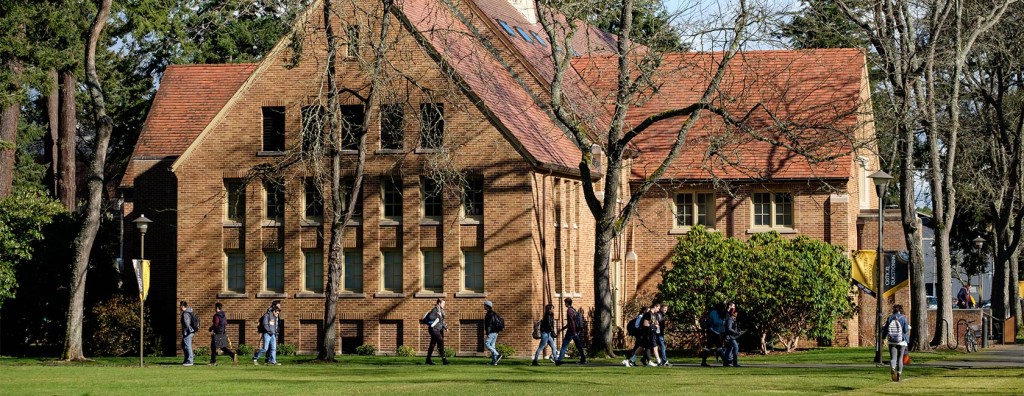Page 16 • (267 results in 0.04 seconds)
-
their identity and their interconnections between themselves and others Examining the relationships between human-ecological systems Practicing skills (ex: dialogue, listening, critical questioning, wellbeing strategies) for living and leading in community Building an active DJS-centered community Please email djs@plu.edu for more information about how to list your program. Sign UpJoin the DJS CoalitionSubmit a ReflectionDJS Series Reflection FormUpcoming DJS Coalition Series EventsHere are some
-
. Use historical perspective as central to active citizenship. Learning Outcomes for Lower-Division CoursesThe History Department has structured all 100-200-level courses to create the following learning outcomes for students who complete them successfully. Students will: 1. Learn and practice the evaluation of historical evidence by identifying and explaining specific claims or ideas in primary and secondary sources. 2. Practice skills of oral expression and dialogue through interpreting and
-
collaboratively. The faculty mentor is expected to respond to each packet within two weeks, making comments and suggestions for the work sent, and suggesting reading and writing assignments for the next packet exchange. The RWW has no set curriculum for participants. In dialogue with the participant, each mentor tailors the mentorship year in light of the participant’s goals and needs. Below is a summary of a participant’s three-year trajectory through the program: YEAR ONE: ENGL 504: Residency One. Gather
-

the dancers and the choreographer. This piece was originally set at the University of Idaho. “I was excited to work with students with theatre background in this PLU cast, as the piece involves characterization, dialogue, poetry and singing,” Winchester explains. “There is a projection at the end of the piece that ties into the theme of memory and the title, Home Movies. The students participated in the process of creating moments on film and practicing basic video editing- all part of the
-
gestures for the phrase, which consists of the index finger followed by the international peace sign of two fingers. “There is so much opportunity in this world – particularly when we open ourselves up to talk about our differences, our similarities, and our hope for the future,” Mulder said. “Dialogue is a powerful thing, and we experienced that through this conversation.” Read more about the experiences of all the Lutes studying away on the seven continents this J-Term at the Sojourner blog. Many
-
dialogue, we’ll help them come up with ideas and ways to strengthen that community.” The campaign is a joint effort by ASPLU, the Residential Hall Association, Campus Ministry, the Diversity Center, Students for Peace, the Women’s Center, Counseling Center, Health Center and Campus Safety. “When it (campus shootings) happens, I’m always reminded in such a profound way that the smallest kindness can make such a difference,” Fontana said. “My responsibility as a member of the community is to be as kind
-
minute’s worth of dialogue for us to change (the set),” Rud said. After all those changes, the supers still have to switch back into their costumes for curtain call, and then back into their blacks to clean up the stage and reset it for the next performance. “By the time it’s all said and done, I have usually been there for five or six hours,” Rud said. Rud is looking forward to the final weekend, hoping to tighten up his work and avoid the previous slip ups. As for acting anxiety, the real butterflies
-

from 23 states and 10 countries. “Tom energetically engaged with students, faculty, university staff, alumni, and donors during a period of remarkable cultural change, both on campus and in our larger community. At a time of widespread student protests on campuses nationwide, PLU has benefitted from Tom’s skill in fostering dialogue with students and proactively addressing their concerns in a constructive and collaborative fashion, and we are committed to continuing that approach,” Severson said
-

the dancers and the choreographer. This piece was originally set at the University of Idaho. “I was excited to work with students with theatre background in this PLU cast, as the piece involves characterization, dialogue, poetry and singing,” Winchester explains. “There is a projection at the end of the piece that ties into the theme of memory and the title, Home Movies. The students participated in the process of creating moments on film and practicing basic video editing- all part of the
-

exclusive or elite, and should not be about worshipfully studying some “old dead white guys” and trying to make more people in their image. Instead, Classics are inclusive, open, and inviting. Luke Parker, Visiting Assistant Professor of Classics Professor Parker tells students: “It’s about your own dialogue with the material, not me telling you what you should think about it. . . . These cultures and texts have been read and discussed for thousands of years because people continued to find them
Do you have any feedback for us? If so, feel free to use our Feedback Form.


